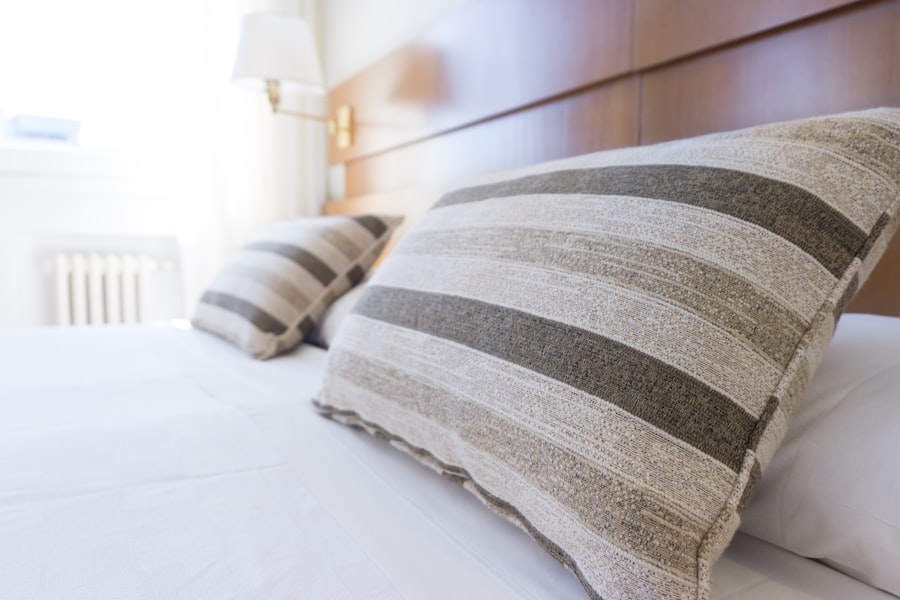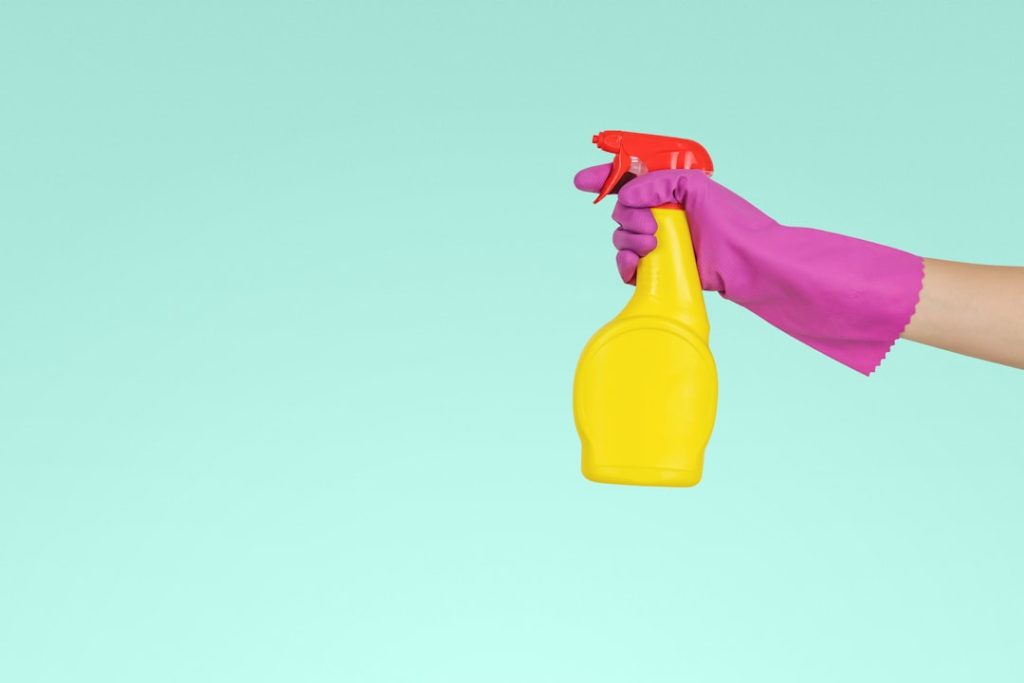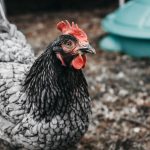Proper nutrition is essential for chicken health and well-being. A balanced diet provides necessary nutrients for growth, egg production, and overall health. Commercial chicken feed forms a solid nutritional foundation, supplying vital vitamins, minerals, and protein.
Supplementing with kitchen scraps, fruits, vegetables, and grains offers variety and additional nutrients. Constant access to clean, fresh water is crucial, as dehydration can cause serious health problems. Grit and oyster shells are important for digestive health and eggshell formation.
Grit aids in food grinding within the gizzard, while oyster shells supply calcium for strong eggshells. Monitoring food intake and adjusting feed amounts based on age, size, and activity level is important. Overfeeding can result in obesity and health issues, while underfeeding may lead to malnutrition and reduced egg production.
Providing a well-balanced diet and carefully managing food intake helps ensure chickens remain healthy and productive.
Table of Contents
- 1 Regular Cleaning and Maintenance of the Coop
- 2 Providing Adequate Space for Your Chickens
- 3 Monitoring and Controlling Parasites and Pests
- 4 Regular Veterinary Check-ups and Vaccinations
- 5 Ensuring Proper Ventilation and Air Quality in the Coop
- 6 Implementing Biosecurity Measures to Prevent Disease Spread
- 7 FAQs
- 7.1 What are some common health issues that chickens can face?
- 7.2 How can I prevent health issues in my chickens?
- 7.3 What should I include in my chickens’ diet to keep them healthy?
- 7.4 How can I keep my chickens’ living environment clean and healthy?
- 7.5 What are some signs that my chickens may be unwell?
Key Takeaways
- Proper nutrition is essential for the health and productivity of your chickens, so ensure they have access to a balanced diet with adequate protein and nutrients.
- Regularly clean and maintain the coop to prevent the buildup of bacteria and parasites, which can lead to health issues for your chickens.
- Providing adequate space for your chickens is crucial for their well-being, so make sure they have enough room to move around and exhibit natural behaviors.
- Monitor and control parasites and pests in and around the coop to prevent infestations that can harm your chickens and affect egg production.
- Schedule regular veterinary check-ups and vaccinations to ensure your chickens are healthy and protected from common diseases.
Regular Cleaning and Maintenance of the Coop
Removing Soiled Bedding and Preventing Bacteria Buildup
It’s important to remove soiled bedding regularly and replace it with fresh, clean bedding to prevent the buildup of bacteria and ammonia. This helps eliminate harmful pathogens and keeps the coop smelling fresh.
Inspecting and Repairing the Coop
Inspecting the coop for any signs of damage or wear and tear is important for the safety of your chickens. Repairing any broken or damaged areas can prevent injuries and provide a secure environment for your flock.
Maintaining Good Air Quality
Providing adequate ventilation in the coop is also essential for maintaining good air quality and preventing respiratory issues. By regularly cleaning and maintaining the coop, you can ensure that your chickens have a clean and safe living environment.
Providing Adequate Space for Your Chickens

Providing adequate space for your chickens is essential for their physical and mental well-being. Overcrowding can lead to stress, aggression, and an increased risk of disease transmission. The general rule of thumb is to provide at least 2-3 square feet of space per chicken inside the coop, and 8-10 square feet per chicken in the outdoor run.
This allows them to move around freely, stretch their wings, and engage in natural behaviors such as dust bathing and foraging. Additionally, providing enough space reduces the risk of injury from pecking or fighting among the flock. It’s important to consider the breed and size of your chickens when determining the appropriate amount of space needed.
If space is limited, consider expanding the coop or providing additional outdoor space for your chickens to roam. By providing adequate space for your chickens, you can ensure that they are comfortable, healthy, and able to exhibit natural behaviors. Providing adequate space for your chickens is essential for their physical and mental well-being.
Overcrowding can lead to stress, aggression, and an increased risk of disease transmission. The general rule of thumb is to provide at least 2-3 square feet of space per chicken inside the coop, and 8-10 square feet per chicken in the outdoor run. This allows them to move around freely, stretch their wings, and engage in natural behaviors such as dust bathing and foraging.
Additionally, providing enough space reduces the risk of injury from pecking or fighting among the flock. It’s important to consider the breed and size of your chickens when determining the appropriate amount of space needed. If space is limited, consider expanding the coop or providing additional outdoor space for your chickens to roam.
By providing adequate space for your chickens, you can ensure that they are comfortable, healthy, and able to exhibit natural behaviors.
Monitoring and Controlling Parasites and Pests
Monitoring and controlling parasites and pests is crucial for maintaining the health of your flock. Common parasites such as mites, lice, fleas, ticks, and worms can cause discomfort, stress, and illness in chickens if left untreated. Regularly inspecting your chickens for signs of parasites such as feather loss, irritation, or unusual behavior can help identify infestations early on.
Additionally, implementing preventive measures such as regular cleaning of the coop, using diatomaceous earth or other natural remedies, and practicing good biosecurity can help reduce the risk of parasite infestations. It’s important to consult with a veterinarian if you suspect a parasite infestation in your flock to determine the best course of treatment. By monitoring and controlling parasites and pests, you can ensure that your chickens are healthy and free from infestations.
Monitoring and controlling parasites and pests is crucial for maintaining the health of your flock. Common parasites such as mites, lice, fleas, ticks, and worms can cause discomfort, stress, and illness in chickens if left untreated. Regularly inspecting your chickens for signs of parasites such as feather loss, irritation, or unusual behavior can help identify infestations early on.
Additionally, implementing preventive measures such as regular cleaning of the coop, using diatomaceous earth or other natural remedies, and practicing good biosecurity can help reduce the risk of parasite infestations. It’s important to consult with a veterinarian if you suspect a parasite infestation in your flock to determine the best course of treatment. By monitoring and controlling parasites and pests, you can ensure that your chickens are healthy and free from infestations.
Regular Veterinary Check-ups and Vaccinations
Regular veterinary check-ups are important for maintaining the health of your chickens. A veterinarian can conduct routine examinations to check for any signs of illness or disease in your flock. They can also provide guidance on proper nutrition, parasite control, vaccination schedules, and overall flock management.
Additionally, vaccinations are an important preventive measure to protect your chickens from common diseases such as Marek’s disease, Newcastle disease, infectious bronchitis, and fowl pox. It’s important to work with a veterinarian who has experience with poultry to develop a vaccination schedule tailored to the specific needs of your flock. Regular veterinary check-ups and vaccinations are essential for preventing disease outbreaks and ensuring the long-term health of your chickens.
Regular veterinary check-ups are important for maintaining the health of your chickens. A veterinarian can conduct routine examinations to check for any signs of illness or disease in your flock. They can also provide guidance on proper nutrition, parasite control, vaccination schedules, and overall flock management.
Additionally, vaccinations are an important preventive measure to protect your chickens from common diseases such as Marek’s disease, Newcastle disease, infectious bronchitis, and fowl pox. It’s important to work with a veterinarian who has experience with poultry to develop a vaccination schedule tailored to the specific needs of your flock. Regular veterinary check-ups and vaccinations are essential for preventing disease outbreaks and ensuring the long-term health of your chickens.
Ensuring Proper Ventilation and Air Quality in the Coop

Why Ventilation Matters
Proper ventilation is crucial for maintaining good air quality in the coop. Poor ventilation can lead to a buildup of ammonia from droppings, which can cause respiratory issues in chickens. It’s essential to provide adequate airflow by installing vents or windows in the coop to allow fresh air to circulate.
Insulation and Humidity Control
Additionally, ensuring proper insulation can help regulate temperature fluctuations inside the coop while maintaining good ventilation. Monitoring humidity levels inside the coop is also important as high humidity can create an ideal environment for mold growth and respiratory issues in chickens.
Creating a Healthy Environment
By ensuring proper ventilation and air quality in the coop, you can create a comfortable living environment for your flock while reducing the risk of respiratory problems. This is essential for keeping your chickens healthy and happy.
Implementing Biosecurity Measures to Prevent Disease Spread
Implementing biosecurity measures is crucial for preventing disease spread within your flock. Biosecurity involves practices that reduce the risk of introducing diseases into your flock or spreading diseases between flocks. This includes measures such as limiting visitors to your coop, quarantining new birds before introducing them to your existing flock, disinfecting equipment and footwear before entering the coop area, and preventing contact with wild birds or other animals that may carry diseases.
Additionally, practicing good hygiene by washing hands before and after handling chickens or eggs can help prevent disease transmission between humans and birds. It’s important to develop a biosecurity plan tailored to your specific farm or backyard setup with guidance from a veterinarian or poultry expert. By implementing biosecurity measures, you can reduce the risk of disease outbreaks within your flock while promoting overall chicken health.
Implementing biosecurity measures is crucial for preventing disease spread within your flock. Biosecurity involves practices that reduce the risk of introducing diseases into your flock or spreading diseases between flocks. This includes measures such as limiting visitors to your coop, quarantining new birds before introducing them to your existing flock, disinfecting equipment and footwear before entering the coop area, and preventing contact with wild birds or other animals that may carry diseases.
Additionally, practicing good hygiene by washing hands before and after handling chickens or eggs can help prevent disease transmission between humans and birds. It’s important to develop a biosecurity plan tailored to your specific farm or backyard setup with guidance from a veterinarian or poultry expert. By implementing biosecurity measures, you can reduce the risk of disease outbreaks within your flock while promoting overall chicken health.
In conclusion… Proper nutrition plays a vital role in maintaining good chicken health by providing essential nutrients for growth, egg production, and overall well-being. Regular cleaning and maintenance of the coop create a clean living environment that reduces the risk of disease transmission among your flock while ensuring their comfort and safety.
Providing adequate space allows chickens to exhibit natural behaviors while reducing stress and aggression within the flock. Monitoring and controlling parasites helps prevent discomfort and illness in chickens while protecting their overall health. Regular veterinary check-ups are essential for preventing disease outbreaks through vaccinations tailored to the specific needs of your flock while ensuring proper ventilation creates a comfortable living environment with good air quality.
Implementing biosecurity measures reduces the risk of disease spread within your flock while promoting overall chicken health through preventive practices tailored to your specific farm or backyard setup. By following these guidelines for proper chicken care including nutrition management practices like regular cleaning maintenance monitoring controlling parasites regular veterinary check-ups vaccinations ensuring proper ventilation air quality implementing biosecurity measures you can ensure that your chickens stay healthy happy thriving members of your backyard or farm community!
If you’re looking for tips on how to keep your chickens healthy, you might also be interested in learning about the best chicken coop interior ideas. Check out this article for some great ideas on how to create a comfortable and safe living space for your feathered friends. And for more poultry-related information, be sure to visit poultrywizard.com.
FAQs
What are some common health issues that chickens can face?
Some common health issues that chickens can face include respiratory infections, parasites (such as mites and lice), egg binding, and bumblefoot.
How can I prevent health issues in my chickens?
To prevent health issues in your chickens, it is important to provide a clean and dry living environment, offer a balanced diet, provide access to fresh water, and practice good biosecurity measures.
What should I include in my chickens’ diet to keep them healthy?
A healthy diet for chickens should include a balanced commercial feed, fresh fruits and vegetables, and access to grit for digestion. Additionally, providing access to calcium supplements can help prevent egg-laying issues.
How can I keep my chickens’ living environment clean and healthy?
To keep your chickens’ living environment clean and healthy, regularly clean and replace bedding, remove droppings from the coop and run, and regularly inspect for signs of pests or parasites.
What are some signs that my chickens may be unwell?
Signs that your chickens may be unwell include decreased egg production, changes in behavior, abnormal droppings, respiratory issues, and visible signs of injury or illness. It is important to monitor your chickens regularly for any changes in their health.
Meet Walter, the feathered-friend fanatic of Florida! Nestled in the sunshine state, Walter struts through life with his feathered companions, clucking his way to happiness. With a coop that’s fancier than a five-star hotel, he’s the Don Juan of the chicken world. When he’s not teaching his hens to do the cha-cha, you’ll find him in a heated debate with his prized rooster, Sir Clucks-a-Lot. Walter’s poultry passion is no yolk; he’s the sunny-side-up guy you never knew you needed in your flock of friends!







